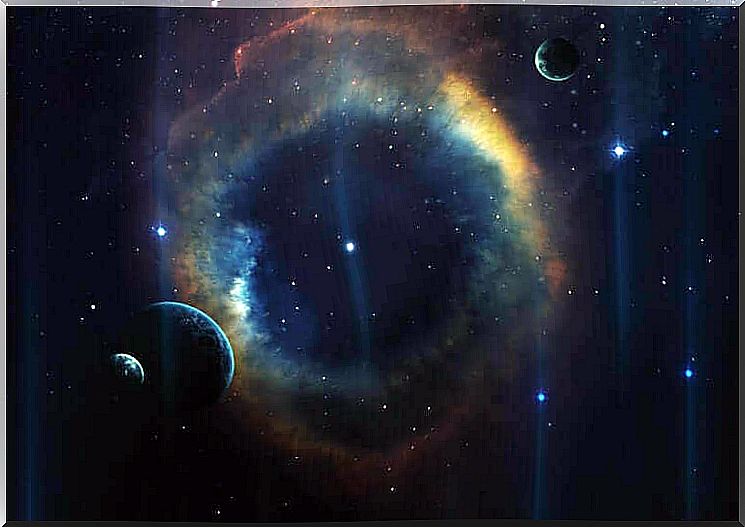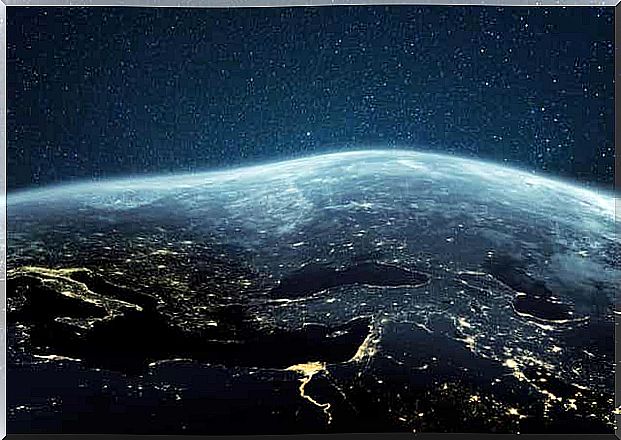4 Quotes From Thales Of Miletus On The Universe That Give You Food For Thought

Thales of Miletus (c. 624 – c. 545 BC) founded the Ionian school of thinkers in ancient Greece. At that time he was known as one of the Seven Sages, and Aristotle himself came to regard him as the founder of natural philosophy, for he was the first Greek to seek the ultimate substance of things, which for Thales of Miletus was water.
He lived in Athens and, according to some texts, was educated by an Egyptian priest. As a man deeply involved in issues related to astronomy, he provided a number of explanations for cosmological events that were supernatural.
Ultimately, his philosophical approach in which he questioned everything to do with celestial phenomena resulted in the beginnings of Greek astronomy. Let’s see this in more detail.

Thales of Miletus: the philosopher of nature
The hypotheses of Thales of Miletus were new and daring. So much so that, as the Internet Encyclopedia of Philosophy (IEP) indicates, this philosopher could have been the first to study astronomy, the first to predict solar eclipses, and the first to fix the winter solstices and summer.
Thus, without a laboratory, pipette or any instrument, he was the first to ask the fundamental questions of humanity. These questions are: Who are we? Where do we come from ? Where are we going ?
We thus enter the mind of this philosopher called “The wise astronomer”. The latter left us long sentences to reflect, meditate and think about our place in this infinite space that is the cosmos, and our intimate relationship with it:
1. “Water is the nature of everything.”
Thales of Milet said that we are water and that we come from water. Because for him, it is nature itself, the source of everything, and the original principle, the beginning of the universe.
At that time, he believed that the Earth was a flat disk floating on water and that the beginning of everything was water (that is, everything comes from water and that at the end of everything goes back to the water). And, therefore, he believed that everything in the universe was just a modification of water. Water was for him a unique material substance.
As indicated in a 2009 study on the nature of water entitled: The nature of water: the ark of Thales , many explanations can be given as to the importance of water, especially its role in living processes. And for Thales, the ocean and Thetys were, in Homer’s tradition, the parents of the world.
Even humans are 60% water … The brain 70% water, the blood 80% water and the lungs 90% water.
2. “The biggest thing is space because it encloses everything.”
For Thales, space may not be infinite, but it contains everything it contains. He tried to explain the structure of the universe in a logical way and to clarify the order and the distance of the Earth from other celestial bodies, such as the Moon, the Sun and the stars. To do this, he used the results of Babylonian science.
However, much of his thinking was equivocal. He gave the universe a reverse order to what it actually has, understanding that the sun is farther away than other stars.
3. “Isolate yourself in your inner world and reflect on the system of the Universe.”
In line with the previous thought, Thales of Miletus also proposed looking inward and reflecting on what we are, or what we want to be, in relation to something as vast and immeasurable as the Universe. From the smallest to the most immense and inexplicable that the cosmos can be.
Because if the size and age of the cosmos is beyond normal human comprehension, then where is our tiny, millimeter house? What is our place in this point and this space in the midst of immensity and eternity?
Beside that, our daily worries and worries may seem absurd. And that’s exactly what astronomer Carl Sagan asked himself.
4. Thales of Miletus: “Nothing is older than God, for he was never created.”
This sentence from Thales de Miletus is another of his thoughts on the creation of the Universe, on the origin of everything. It seems, and as the IEP indicates, that for Thales, all things are full of God.
“Judging from what is reported from his opinions, he seems to assume that the soul is somehow the cause of movement, for he says that a stone has a soul because it moves iron (Del 405 a 20-22), and some think that the soul permeates the whole universe, hence perhaps Thales’s opinion that everything is full of gods ”, commented Aristotle.










